The post Startup’s – Key Skills You Need To Master appeared first on ClickFunnels.
Want to launch a startup?
It can be helpful to think about it in terms of the skill stack that you will need in order to get it off the ground.
That’s why today we want to discuss the three most crucial skills: creating products, marketing them and selling them. If you can master them, you’ll have a much better chance of success.
Of course, you don’t necessarily need to have all three skills yourself. You can also bring in a co-founder. Alternatively, you can raise funding and use that money to build a team. Or you can do both!
However, navigating all that may prove to be more headache than it’s worth, especially if you don’t have any previous business experience and therefore don’t know what you’re doing.
Frankly, it’s probably best to learn how to do everything yourself so that you could maintain 100% equity in your business.
That’s why in this article we are going to assume that it’s just you in the beginning and focus on what you need to make it work as a solopreneur.
Once you start generating revenue, you can reinvest that money in your startup by hiring employees, outsourcing to freelancers, and working with agencies!
- Skill #1: Creating Products
- Skill #2: Marketing Products
- Skill #3: Selling Products
Skill #1: Creating Products
Hardware Startups vs. Software Startups
Startups tend to fall into one of these two categories:
- Hardware startups
- Software startups
Focusing on hardware is probably out of the question unless you are either independently wealthy or able to raise funding.
This means that you are left with software. Fortunately, it’s possible to build software products entirely on your own, in your free time, with very little money.
Meet Indie Hackers
We would argue that bootstrapping software startups is the best path for aspiring entrepreneurs because the downside is limited but the upside isn’t.
This is known as “indie hacking” and the indie hacker scene has produced countless success stories over the last decade or so.
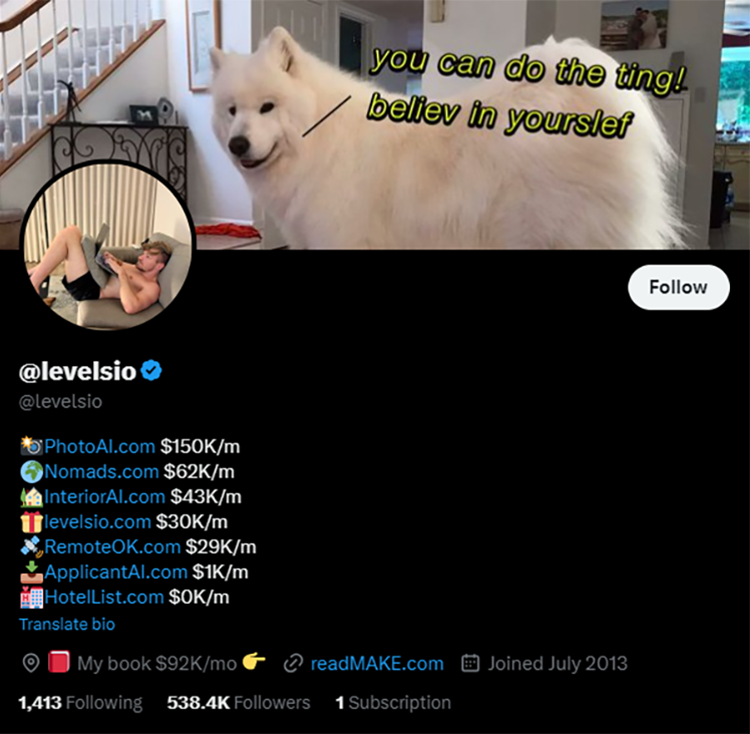
Its superstar is the Dutch entrepreneur Pieter Levels.
He started out back in 2014 with his “12 Startups in 12 Months” challenge.
His 4th product, Nomad List, took off and his 7th product, Remote OK, was also a success. It appears that he stopped the challenge at that point to focus on growing these two startups.
Since then, he has shipped more than 70 products, the vast majority of which have failed.
However, the ones that succeeded are generating more than $400k in total monthly revenue at the time of writing. That adds up to more than $4.8M in total annual revenue!

Meanwhile, the most impressive recent story in this scene is arguably that of Marc Louvion, a French entrepreneur who:
- Got fired in 2021
- Built 21 products in 2 years
- Went from zero to $65k in monthly revenue in those same 2 years
In August 2024, Marc crossed the $1M in total revenue milestone!

Then there’s the story of Andrey Azimov, a Ukrainian entrepreneur who quit his job in 2018 and moved to Southeast Asia to build software products. His goal was to reach $1,000 in monthly recurring revenue in one year.
The reason he chose that number as his target was that $1k per month was enough to pay for his living expenses.
He knew that if he could consistently make that much money with his software, he would be able to continue pursuing his entrepreneurial dreams. Meanwhile, failure meant having to go home and get a job.
Andrey called this challenge his “Hardcore Year”. Throughout that year, he built 7 apps, one of which was acquired. He reached his goal in 14 months and has been a full-time solopreneur ever since!
We shared these three success stories to show you what’s possible. You can find more inspiration on the Indie Hackers podcast!
What Skills do You Need to Create SaaS Products?
If you want to build SaaS products that generate recurring monthly revenue, you will need to learn web development.
There are a ton of great resources out there, but if we had to choose one, it would probably be the online learning platform Udemy.
We recommend waiting for one of Udemy’s sales and getting these web development courses, which should cost you less than $100 in total:
- “The Complete Web Development Bootcamp for 2024” by Angela Yu
- “The Web Developer Bootcamp 2024” by Colt Steele
- HTML and CSS course + Javascript course by Jonas Schmedtmann
Sometimes, people start a web development course, struggle to keep up with it, and then come to the conclusion that they must be terrible at coding and give up.
However, when that happens, it’s often because the teaching style of that particular instructor simply doesn’t work for them.
That’s why you want to check out several different courses that cover the basics of web development before committing to one of them.
Go through the first few lessons of each course, see which instructor’s teaching style resonates the most with you and then focus on completing their course.
You will also need to learn user interface (UI) and user experience (UX) design. Here are some of the most popular Udemy courses:
- “Complete Web & Mobile Designer” by Andrei Neagoie and Daniel Schifano
- “Figma UI UX Design Essentials” by Daniel Walter Scott
- “DESIGN RULES: Principles + Practices for Great UI Design” by Joe Natoli
Again, we recommend getting all of them on sale, so that you could see which instructor’s teaching style works best for you.
Make sure to read Udemy’s refund policy if you intend to request a refund for some of the courses because there are some restrictions.
How to Ship Software Products FAST
Something that successful indie hackers tend to have in common is that they ship their software products extremely fast.
For example, Pieter Levels has shipped more than 70 products in the last decade, Marc Louvion shipped 21 in 2 years and Andrey Azimov shipped 7 in 14 months. But how did they do it?
Ultimately, you need to learn to build minimum viable products (MVPs), which can be a challenge if you are a perfectionist.
Pieter Levels explains how to do it in his book “Make”. In our view, it’s the best resource for aspiring indie hackers!
Skill #2: Marketing Products
Marketing is how you let your dream customers know that your product exists. So where should you start?
First, we recommend reading Paul Graham’s essay “Do Things That Don’t Scale” because it will provide some perspective.
Graham is a co-founder of Y-Combinator, one of the best-known startup accelerators in the world. In his essay, he uses startups that he invested in as examples, but the same principles apply to indie startups as well.
His main point is that if you want to get your startup off the ground, you need to be prepared to do things that don’t scale.
This stands in stark contrast with the wantrepreneurial obsession with “systems”, “processes” and “SOPs”. Don’t waste time worrying about scaling when there’s nothing to scale yet!
With that out of the way, here are three marketing strategies that you might want to consider:
Cold Email
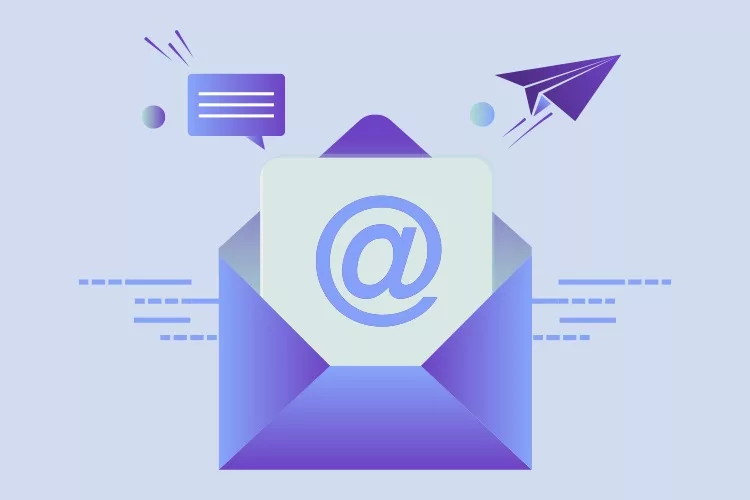
If you don’t have much money but do have a lot of free time, cold email can be a great way to acquire your first users, especially if you sell B2B software.
You can learn the basics by reading this cold email overview by Justin McGill.
Justin, who is the founder of LeadFuze, used this marketing strategy to grow his startup from zero to $30k in monthly recurring revenue in just one year!
Social Media Marketing
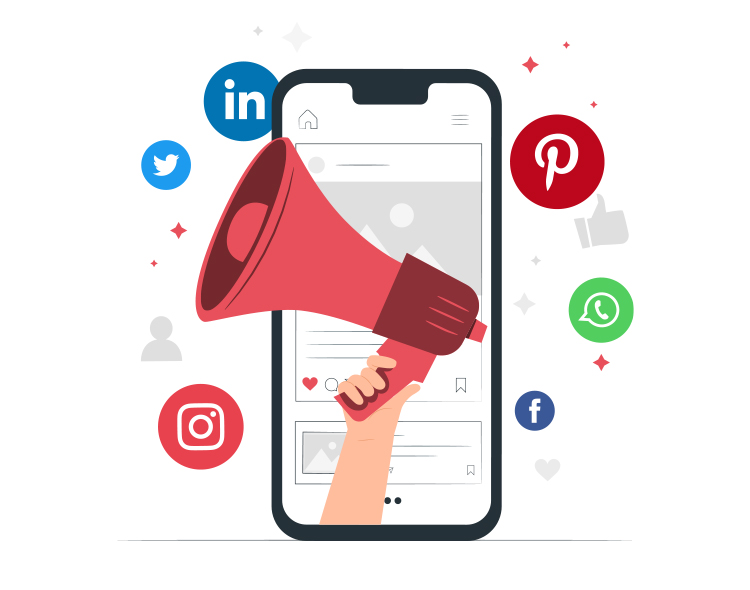
Social media marketing is another great way to promote your product when you can’t afford to spend money on ads but have some free time.
In the indie hacker scene, there’s a “build in public” trend where founders are documenting their entrepreneurial journeys on Twitter, revenue numbers included.
For example, Pieter Levels has over half a million followers at the time of writing. He built that following primarily by tweeting about the stuff he’s working on.
However, it’s important to remember that he started ten years ago when this niche was less crowded. This strategy is not as effective as it used to be.
Copycats are also a legitimate concern. Some people will shamelessly clone your product if they see that your startup is doing well.
You would probably be better off creating content that is targeted towards your dream customers as opposed to fellow indie hackers.
Also, keep in mind that you don’t need a huge following to grow your business, you just need to get the attention of people who might be willing to pay for your product and earn their trust.
And if you regularly post content that provides value to those people, eventually the algorithm will start recommending your profile to them, which will make everything much easier.
Consider watching this video by our friend Alex Hormozi where he shares a story about an entrepreneur who makes nearly $1M a year in profit with less than 6,000 Instagram followers:
Paid Advertising
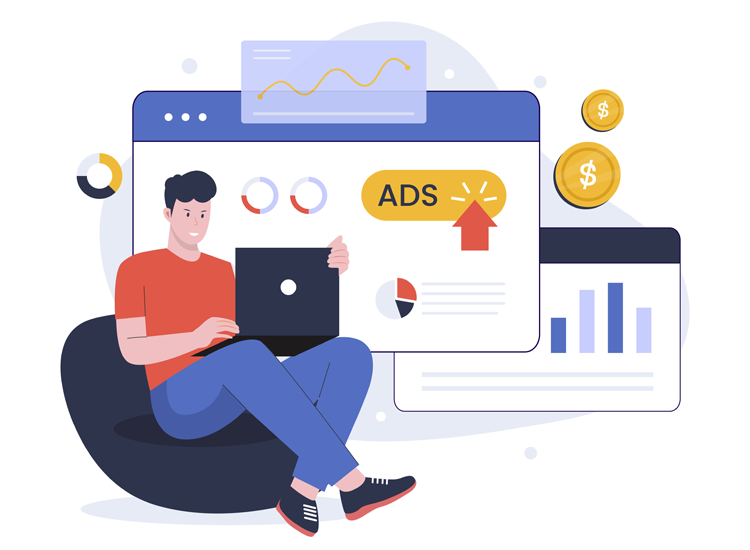
Finally, if you have more money than time, marketing your product with paid advertising might be the way to go.
Think about whether it makes the most sense to advertise on Google, Facebook, or LinkedIn.
Then, wait for a Udemy sale and buy a course that teaches how to run ads on your chosen platform.
Go through that course to learn the basics and then start running, optimizing, and scaling ad campaigns.
Just know that you’ll inevitably end up burning money until you figure out how to run ads profitably. Consider it a tuition fee!
Skill #3: Selling Products
Getting your dream customers’ attention is not enough. You will also need to persuade them to buy your product.
That can be broken down into these two skills:
Sales
Sales are about talking to potential customers directly, whether in person, on the phone, or via Zoom calls.
If you don’t have any previous sales experience, that will probably feel super awkward at first, especially if you are not a “people person”.
It might be tempting to tell yourself that you don’t need to study sales because nowadays you can simply learn copywriting instead.
However, as Paul Graham explains in his aforementioned essay “Do Things That Don’t Scale”, startup founders often need to acquire their first users manually.
For example, Airbnb founders literally went door to door in New York to recruit hosts for their platform.
So you probably do need to learn how to sell, especially if you want to give yourself the best chance at success.
Patrick Dang’s videos are a good place to start. Here’s one on SaaS sales:
Also, you might want to check out “Founding Sales: The Early Stage Go-to-Market Handbook” by Peter Kazanjy, the founder of Atrium.
This book covers selling as a founder in the early stages of your startup, including going from zero to your first 30 users!
Copywriting
Copywriting is about persuasion via the written word.
Our co-founder Russell Brunson has used sales funnels to grow ClickFunnels from zero to $100M+ in annual revenue.
You’d think that he’d say that it was sales funnels that made him rich, right? Wrong!
“Copywriting is what made me rich…
It has more impact on how much money you make with your company than anything else,” explains Russell.
You can have the best product in the world but if you can’t convey its value to your dream customers, you will lose out to competitors with inferior products but better copy. Sad but true.
That’s why, if you are serious about building a business, you need to learn copywriting. In fact, we would argue that it’s the most important entrepreneurial skill of them all!
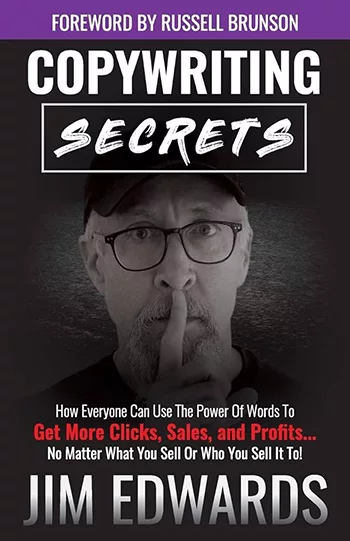
Get “Copywriting Secrets” for FREE!
Want to Learn How to Write Copy That CONVERTS?
Our friend Jim Edwards wrote a best-selling book “Copywriting Secrets” for busy entrepreneurs just like you.
In this book, he covers everything you need to know in order to start writing copy that CONVERTS.
“Copywriting Secrets” is available on Amazon where it has over 1,800 global ratings and a 4.7-star overall rating.
But you can also get it directly from Jim for free.
All he asks is that you cover the shipping!
So what are you waiting for? 🧐
Get “Copywriting Secrets” for FREE!
Thanks for reading Startup’s – Key Skills You Need To Master which appeared first on ClickFunnels.
